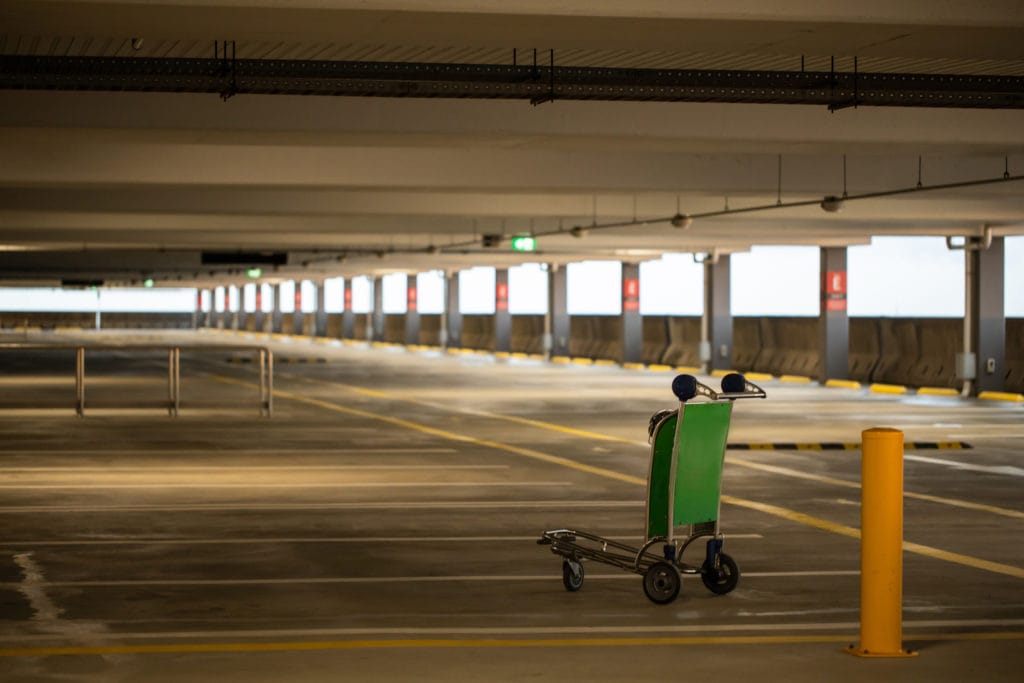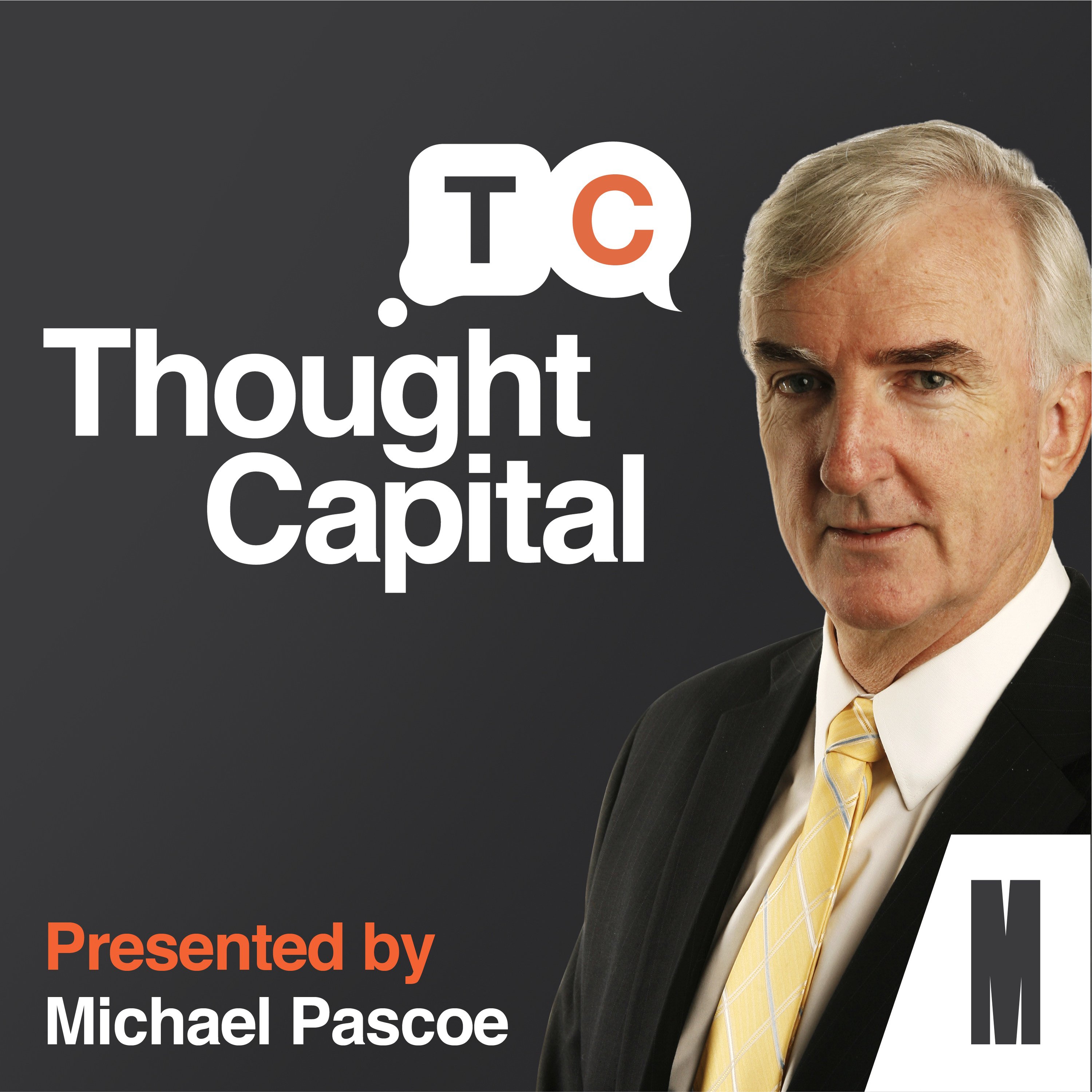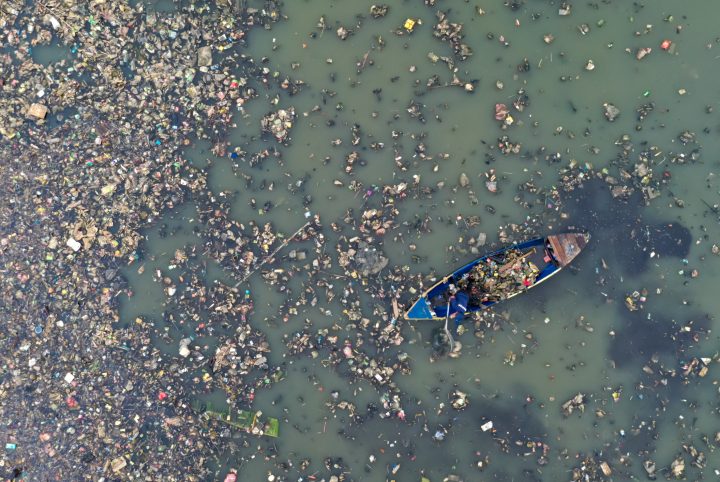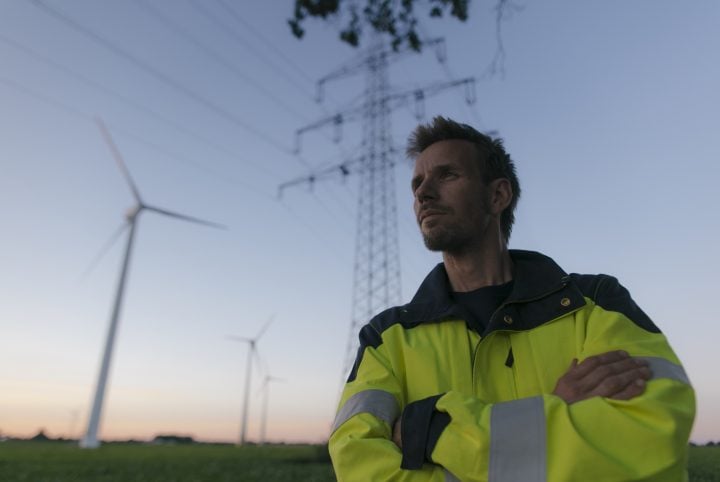Michael Pascoe: As COVID-19 hit and our internal borders close, Tasmania’s Mercury Newspaper landed a great headline, “We have a moat and we are not afraid to use it.” Well, Australia too has a moat, and we’ve certainly used it. A key factor in minimising COVID infections here. There’s also been something of a mental moat, though. So much focus on the domestic economy as if our Island was insulated from the world.
Much of the local economic debate has taken the rest of the world for granted. Globalisation was already under attack before COVID-19 exposed problems with supply chains, boosted calls for protectionism, played well for populous politicians and increased tensions between the world’s two biggest powers. The reality remains that Australia is an open economy. One that has grown rich on the fruits of globalisation. To paraphrase, John Donne, “No economy is an Island entire of itself.” Today, we have three Monash experts with us who are wise on all things global. I have the same opening question for each of them. What do you see as the most pressing international issue for Australia today?
First up is Paul Kalfadellis, senior lecturer in the Department of Management and course director for the master of global business. Paul?
Paul Kalfadellis: Thanks, Michael. Pressing issue for Australia at the moment is the balancing act between national security and trade and business. And so the idea here between being part of a, I would argue, bipolar world with two world powers. The US and a very emergent, if not world power at this level, China, which is basically dominating a lot of the international marketplace in terms of trade and investment. And so Australia is having to juggle a very significant balancing act between being part of an alliance with the US and the US which is becoming more and more insular and in a sense, not really that considerate of its alliance obligations, I would argue. And China, which we’re so enmeshed with from a trade investment perspective that really, to even attempt to disentangle ourselves in a realistic way is going to prove too difficult and too damaging for our economy.
Michael Pascoe: Senior lecturer, Nicola Charwat, from the Department of Business Law and Taxation. You’re an expert on international trade law. What do you think is the most pressing issue for Australia?
Nicola Charwat: I’m interested in the multilateral organisations and Australia’s place within those multilateral organisations. Specifically the WTO and all of those trends that you were talking about and that Paul’s just mentioned as well, I think are playing out in the World Trade Organisation and having a destabilising effect. This is a threat that Australia and whole world has to – and is – taking very seriously. The World Trade Organization since 1995 has provided states with the forum through which they’ve driven predictability and stability for economic growth. Yet state’s faith in that system has now been rocked and it is manifesting in the trade wars where states are circumventing rules or using or misusing rules to achieve their geopolitical aims or exert economic pressure. It’s manifesting in the US withdrawing cooperation at the WTO so that it’s sort of stripped away members from the Appellate Body, the peak judicial body of the WTO.
So, the dispute settlement system’s been left in limbo, which obviously undermines that whole base system. And then there is also there’s more longstanding concerns about the balance of the rules in the first place. But with COVID laid over the top, which is really bringing back into spotlight the criticisms around the balance around intellectual property rules. For example, that the expense of public access to medicines and health, which we really need to respond to this COVID pandemic, I’d agree with many commentators have said it’s sort of a crisis in multilateralism at the minute and Australia’s got to work out what its approach is going to be within that organisation. And I would like to see it take a little bit more leadership.
Michael Pascoe: Professor He-Ling Shi from the Department of Economics. You’ve been researching the Chinese economy for more than 30 years. What’s your view?
He-Ling Shi: Hi, Michael. I personally believe that most pressing issues in Australia facing now is the conflict between the largest economy and second largest economy in the world. So I agree with Paul in the sense that, say before 2014 United States was the only super power in the world and Australia it’s quite easy to pick which side be friend with the United States but business partner with China. But after 2014, the current Chinese leaders become more aggressive. And the reason why I pick up 2014 is because from a PPP term, which is stand for Purchasing Power Parity term in 2014, China surpassed United States become the number one in terms of economic size. And after that I can hear lots of noise from elites in China, say that, “Now we are the number one in the world. Why should we follow the rules set up by the United States? We should set up rule.”
So after that to the current leaders become quite assertive and aggressive. And so now for Australia, now it’s quite difficult to achieve the balance between the national security issues, which are obvious associates with the United States, and economy issues which obviously associate with China. When I say national security, I define national security broadly, not just talk about defence, but talk about our value, our democratic systems, our freedoms. That’s the main source of issues now Australia need to make a choice sometimes very difficult to achieve balance, especially after emergence of COVID-19 the Chinese government become even more aggressive now. So now Australia is facing lots of pressures.
Michael Pascoe: The problem is certainly there. The obvious follow-up question is, can we achieve the balance? And if so, how? Paul?
Paul Kalfadellis: In the immediate sense, we need to start thinking a little bit more longterm and strategically. We don’t. We’re short-term based, short-termism rules the roost. And so it’s really about what is expedited at the moment, rather than thinking 20, 30, 40 years down the track, which China does. One of their biggest fundamental issues is there’s a lack of complexity in our economy. What simply that means is we’re reliant on very few things predominantly that we dig out of the ground to further our economic wellbeing. And so you’re caught in a bind because fundamentally we’ve got a situation where we rely on iron ore, coal, petroleum products, education, and tourism.
Coal, long-term issues. China has already announced. So you’re relying on iron ore, petroleum products also problematic for the future. Education, well basically it’s been cut because this pandemic has shown how vulnerable we are to certain… Tourism has been cut. Population growth where we get our immediate fix for economic growth in terms of bringing people in to grow the economy has been cut. So fundamentally how we grow our economy at the moment, we’re caught in a bind and we need to start planning now for the next 10, 20, 30 years. But what we have is a short-termism because the political side works on a short-term basis. Why would I worry about 15 to 20 years time when I’m facing an election in one year or four years time? I won’t.
Michael Pascoe: Has COVID done us a favour in making us wake up to that stuff?
Paul Kalfadellis: Well, I think we have to. I mean, it’s interesting. I mean, just population growth that is not going to basically fuel economic growth. In the next two years we’re going to be roughly 600,000 people short. People may complain about immigration, but fundamentally that’s been the engine for economic growth. You know, you look at other countries, the South Koreas and the Japans of these world, with no fertile land, very little in terms of natural resources and yet are leading economies because fundamentally they spent money in investing in ideas, knowledge. Don’t get me wrong we’re a smart nation.
Michael Pascoe: Nicola, the problems with the WTO. Is there anything we can do? Or are we just passengers on that boat?
Nicola Charwat: Absolutely. There are things that can be done at the WTO. There’s some really positive signs at the WTO that states remain committed to a multilateralism and the WTO and it’s rule-based system as a means of reigning in excessive behaviour of states like China and the United States. And also the WTO provides a forum within which a country like Australia that does have a legacy of punching above its weight when it comes to international relations. We’re getting very distracted, understandably so, by what the United States and what China are doing in the trade wars, but there are other initiatives. So for example, the US is starving the Appellate Body of members. So hamstringing its dispute settlement system, well the EU has proposed an interim arrangement, an agreement, which basically sets up a new Appellate Body that will run on an interim basis in order to resolve appeals and already quite a number of states have signed up to that and it’s operational. Yeah, I think there are positive signs there that multilateralism can work and that Australia can be a part of the solution.
Michael Pascoe: He-Ling, if we’re not already in a new cold war, we’re certainly at the starting gate. How do we manage that balance that you talk about? How can we sit on that barbed wire fence comfortably?
He-Ling Shi: First of all, we need to broad our customer base, putting that way. So rather than rely on China to export 8% of our GDP to one single country, we should establish more customer base in the sense that we need to trade with, for example, India, Japan, Korea, and South East countries. And this countries become richer, especially India in recent years, achieve economic growth rates high than China. And so in the foreseeable future, I personally believe that India should provide a good customer base for Australia to export goods into this new countries.
And secondly I would argue that please do not write China off for the moment, because although I’m trying to argue that to the current leader in China become more aggressive and not so friendly with Australia, but the political system in China is changing quickly. The current leader is facing enormous of pressure after COVID-19 for the way he deal with the pandemics, as well as the way he deal with our countries. And frankly, China is making enemy with the rest of world at moment. And this sorts of situations, I personally believe will change within next four or five years’ time. And therefore, Australia still need to maintain good relations with China and wait for the Chinese political system or political regime to change.
Michael Pascoe: At the same time, it has been a two way escalation hasn’t it? China might’ve been a bit more abrasive, but the United States has been more abrasive. Could it seem that the US wants a bifurcated world, it is scared of China’s rise so is it trying to cut China off and leaving China no alternative?
He-Ling Shi: Yeah. There’s no doubt United States is little bit of worry about resurrections of China. United States is quite clear that they cannot compete China in the area of manufacturing because of the larger scale hardworking and well educated the workforce, and most important is cheap labor force China. But United States still try to maintain the leading age in the technology area. When you realize that China is now try to use whatever method to achieve advance in technology area. So American feel very nervous.
Michael Pascoe: I’ve got a theory that countries basically do what they have to do, and if they’re comfortable, they only do what they need to do to be comfortable. Is China doing us a favor now by forcing us already to go looking for other markets? If you’re growing barley, or if you’re in education or tourism, COVID and the international situation is making us do that, how do we do it best though? Do we wait until we’re pushed, He-Ling?
He-Ling Shi: Australia actually can do lots of things. Australia’s smart country, and we invent lots of new technology and the wifi systems actually was invented in Australia. Also, we have invented a lot of other stuff, and we also achieve quite advanced technology in the area of medical research. So I personally believe that Australia actually can have a long-term view in the sense that to reshape our industries. Meanwhile, I would say that Australia need to have more customers all around the world. Australia should focus on the high-end in terms of manufacturing using robots and that sorts of stuff, because that’s the area we are good on. But leave the downstream of the whole supply chain to our trading partners. Not only China, but also India and Southeast Asia and other countries.
Michael Pascoe: Nicola, an aspect of COVID has been a lot of people, some in this forum, saying we need to manufacture more. Every country has had their supply chains shocked a bit. There’s international trade law support, greater protectionism, which seems to be what a lot of countries are pushing.
Nicola Charwat: Well, I guess the whole or one of the founding rationales of international trade law is to try and prevent protectionism. But yeah, certainly in the early days of the pandemic, states scrambled around to ensure supplies of essential goods and put in place trade measures that would be breaches of the trade rules, except for the exception that these rules were necessary to protect their population’s health and life. My concern is the question of whether these rules and exceptions are appropriate to ensure global distribution of the essential goods that are needed across all populations and protection of health and life across all populations. So the rules do tend to have an insular focus.
Michael Pascoe: Globalisation isn’t dead, but it sounds like it has been severely wounded. Is it too early to give up on the experiment? It has achieved so much.
Nicola Charwat: Yeah, I certainly don’t think we should give up on it. The impacts of the China, US trade wars at the moment, the instability that’s causing is a good indication that this is not the way to go. Going back to bilateral mercantile tit for tat trade relations, doesn’t serve anybody. We’ve recognised the benefits of a strong rules based trading system. And as I said, I don’t think most states are prepared to walk away from it.
Michael Pascoe: Coming back to the short term. He-Ling, China seems to be sniping at parts of our existing trade, wine, barley. Perhaps trying to discourage students should the borders be open again. What can we do about that?
He-Ling Shi: The first best solution obviously is go back to John Howard. John Howard always have view to deal with China we agree on what we can agree and we just put aside those issues we cannot reach sorts of agreement. So hope that the Chinese government to become a little bit soft and not so aggressive. And therefore, when we talk about economic issues, purely focused on economic issues, don’t intervene the economic issues with political issues. That’s the first best solution. But unfortunately this first best might not be that easy to be achieved.
So if I’m in the position to have to pick up one side, I will say we should stand still on our value because the freedom and democratic system is so important. I was born in China, I was grow up in China and I understand the terrible lifestyle living in the country without sufficient freedom. So, from Australia’s perspective is that we need to proactive to defence our value defence our political system. If the Chinese come to start intervene or interference our system, we should make our signal very clear that we respect our value. And then that’s the most important. And then just wait for China to change it.
Michael Pascoe: With a longer term view. Have we made a mistake though, in going further than we needed to in antagonising China? Going further than we needed to on saying we need to find out where COVID came from in Wuhan? Going further than we needed to by repeating Donald Trump’s charges about China’s developing nations status in the WTO? We’ve made it worse for ourselves?
He-Ling Shi: Yeah, sometimes the Australia government become little bit of proactive in a sense. So we need to understand the sensitivity issues in China at moment. The origin of COVID-19 is a very sensitive issue for whatever reason. So when the Canberra put forward a proposal to investigate origin of COVID-19, the Chinese government become furious. So that’s one issue. Probably we should join with other country to raise this issue rather than we stand alone. Confront China directly. Economically, we still rely on China and if you think about population or about whole economy, we still quite small compared to China. We should not in the position to fight with China by ourself.
Michael Pascoe: Coming out of COVID, assuming that we do, either through a vaccine or that it burns itself out eventually, will the world look different from an economic and trade point of view? Paul?
Paul Kalfadellis: In part, yes, COVID has basically, like He-Ling said earlier, economies like Australia are just not big enough to be able to, in terms of economies of scale, produce on a mass level. But we probably opened up so much that it’s always about, again, going back to my short term, the market seems to dominate. And so wherever it’s economic we’ll produce our, you know, essential goods like … or ventilators. And so you have a crisis happening and then all of a sudden that supply route is cut. And then you add a loss. So you need different avenues. You need different focuses in terms of supplier countries, rather than being reliant just on one. And you need, I would argue, a plan within Australia maybe to produce some of these goods or to have in place a system where you can turn things around relatively fast.
Clearly what has been revealed as a result of COVID is a need to rethink the whole supply chain. It doesn’t mean we’re going to bring everything back, it’s just not economical, that’s not realistic. But you also have to get the population onsite to realise that some of this stuff now like personal protection equipment, if you’re producing it locally is going to cost more. You can’t keep that sort of notion, “Oh, let’s get it at the cheapest destination or let’s get it produced where it’s cheaper.” There are consequences. COVID in that sense has been positive because it’s going to compel us to think through a lot of these issues where it was just assumed, “Oh, cheapest destination. Let’s produce it there and let’s get it here.”
Michael Pascoe: Well, whichever path Australia chooses, there are consequences. However wide our moat we are still part of a global system and subject to the actions of our powerful trade and political partners. Paul Kalfadellis, Nicola Charwat and He-Ling Shi, It’s been a pleasure talking to you.
The future is now. Oh, okay that’s a cliche. But it’s a rival has been accelerated by the pandemic turbocharging digital disruption. What does that mean to how we work and live? Who are the real winners and losers in a world of online everything? Listen in next week. Thought Capital is written and produced by Tina Zenou, editor is Nadia Hume, executive producer, Helen Westerman. If you’d like to find out more, go to monash.edu/business. Look for us wherever you listen to podcasts.




